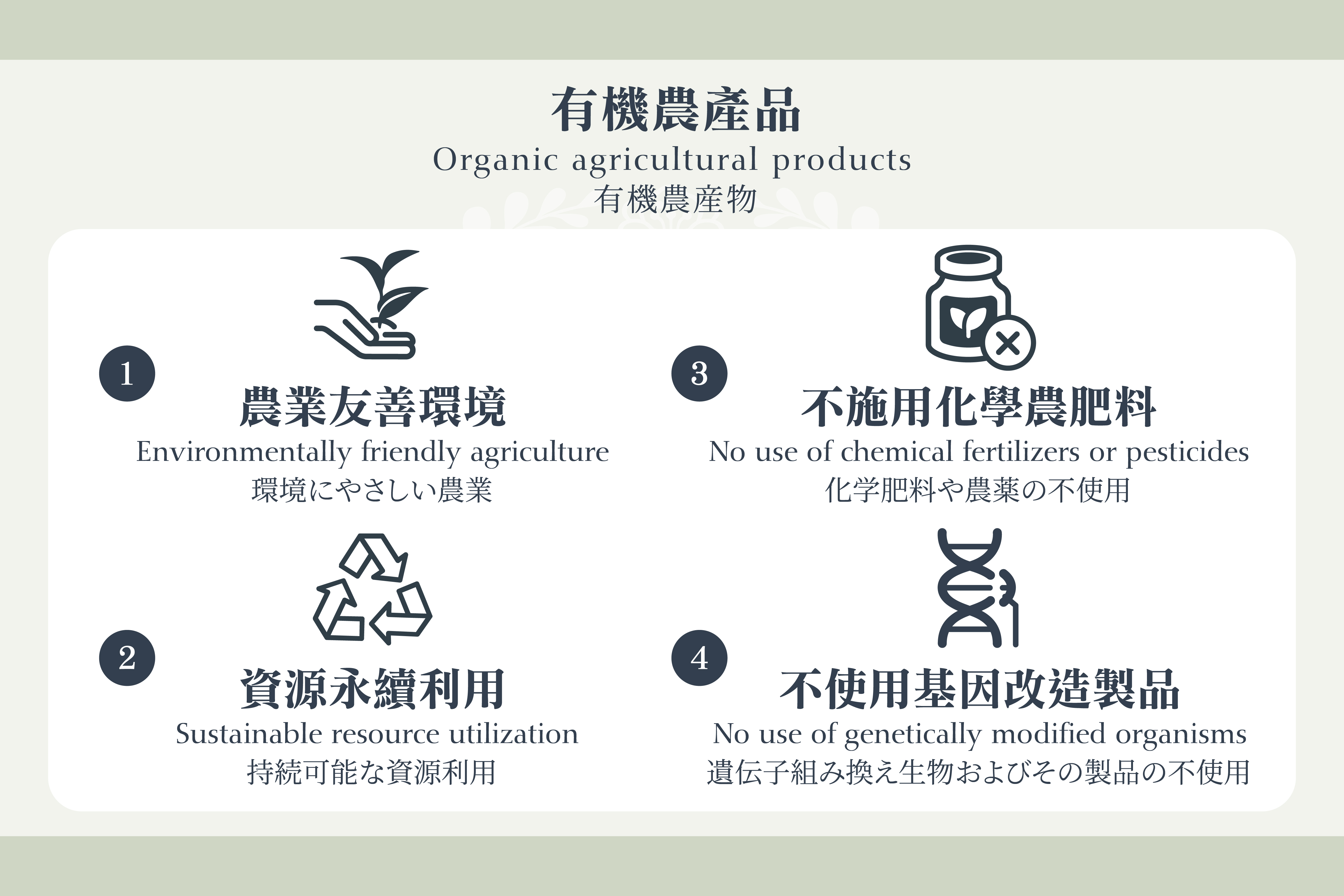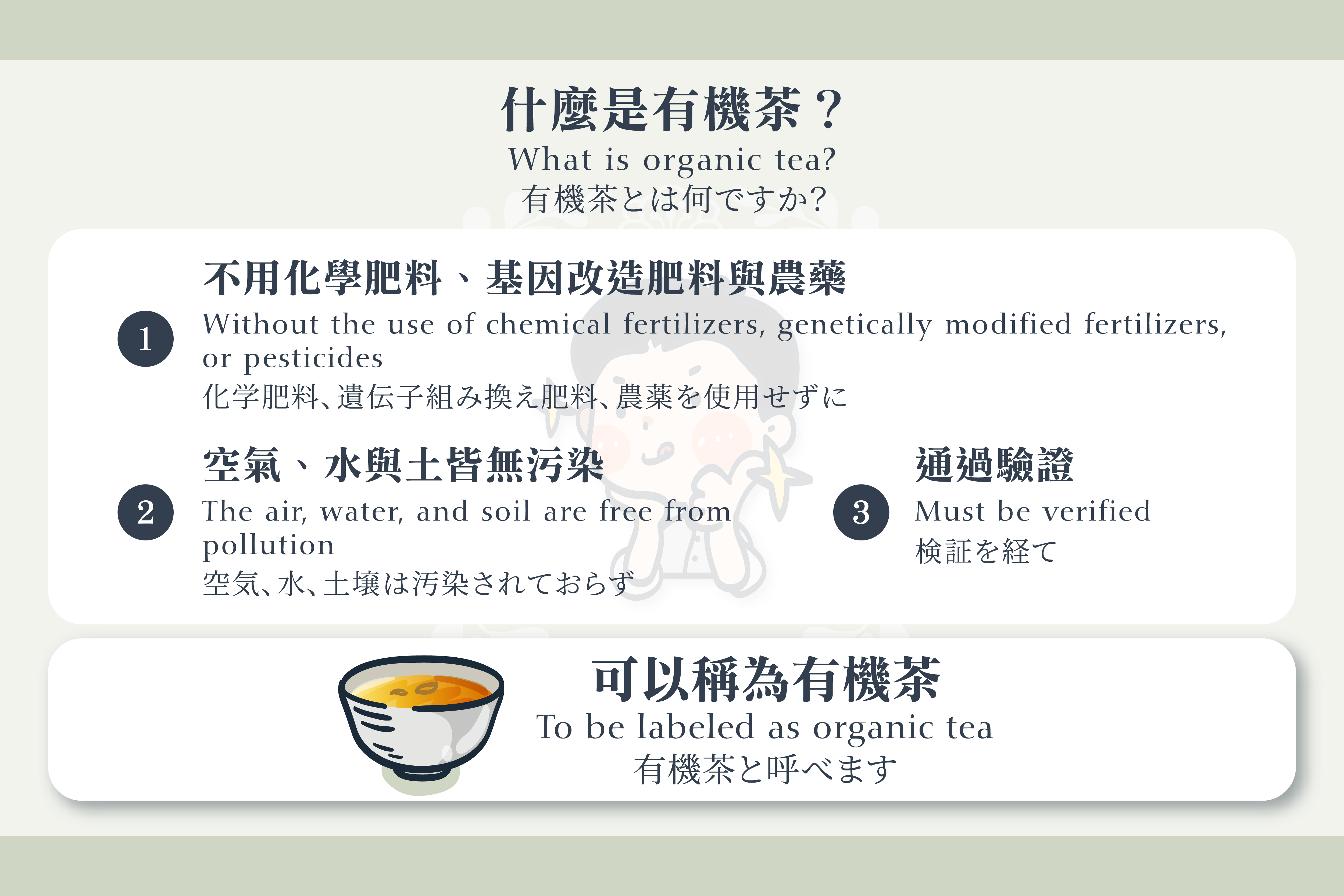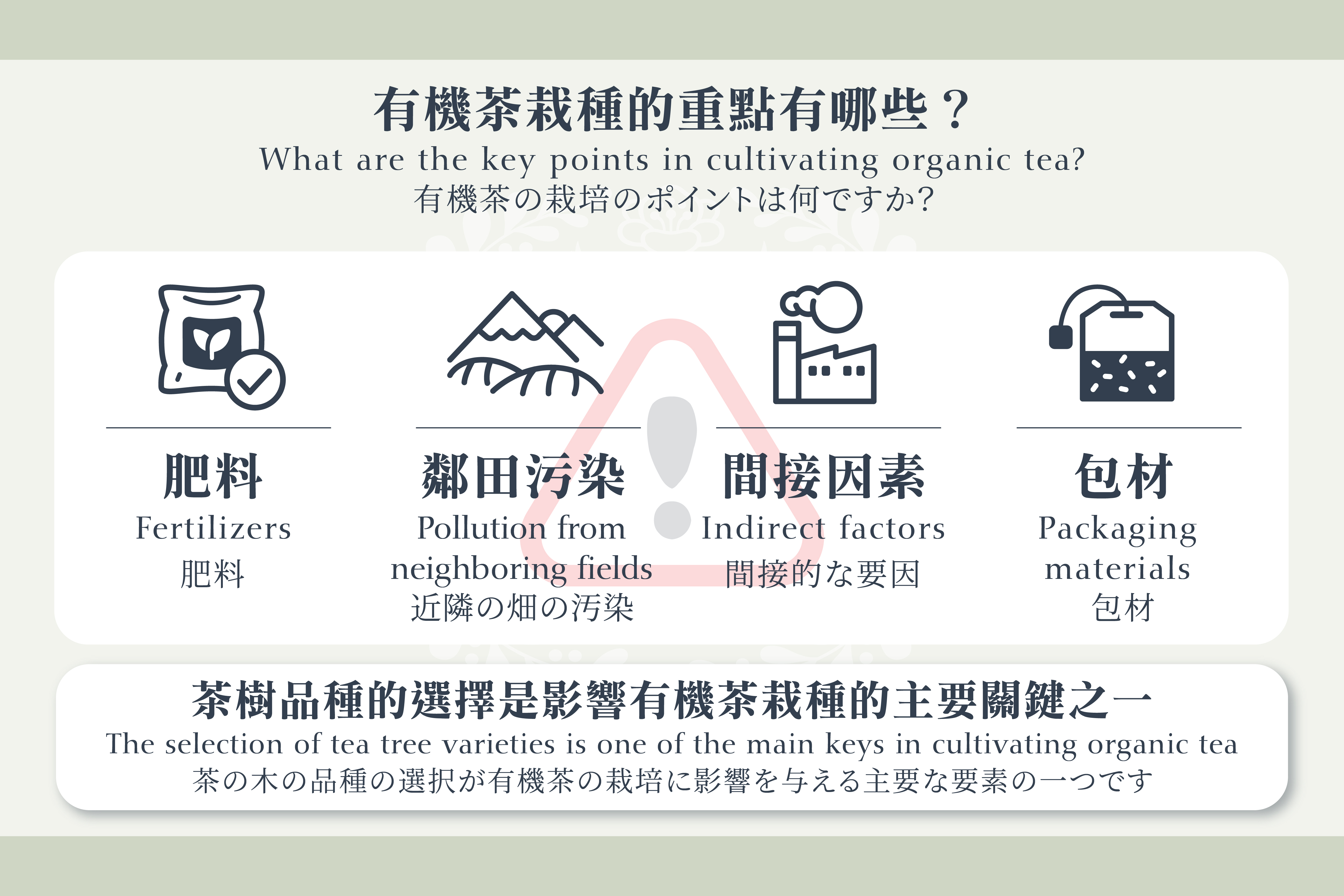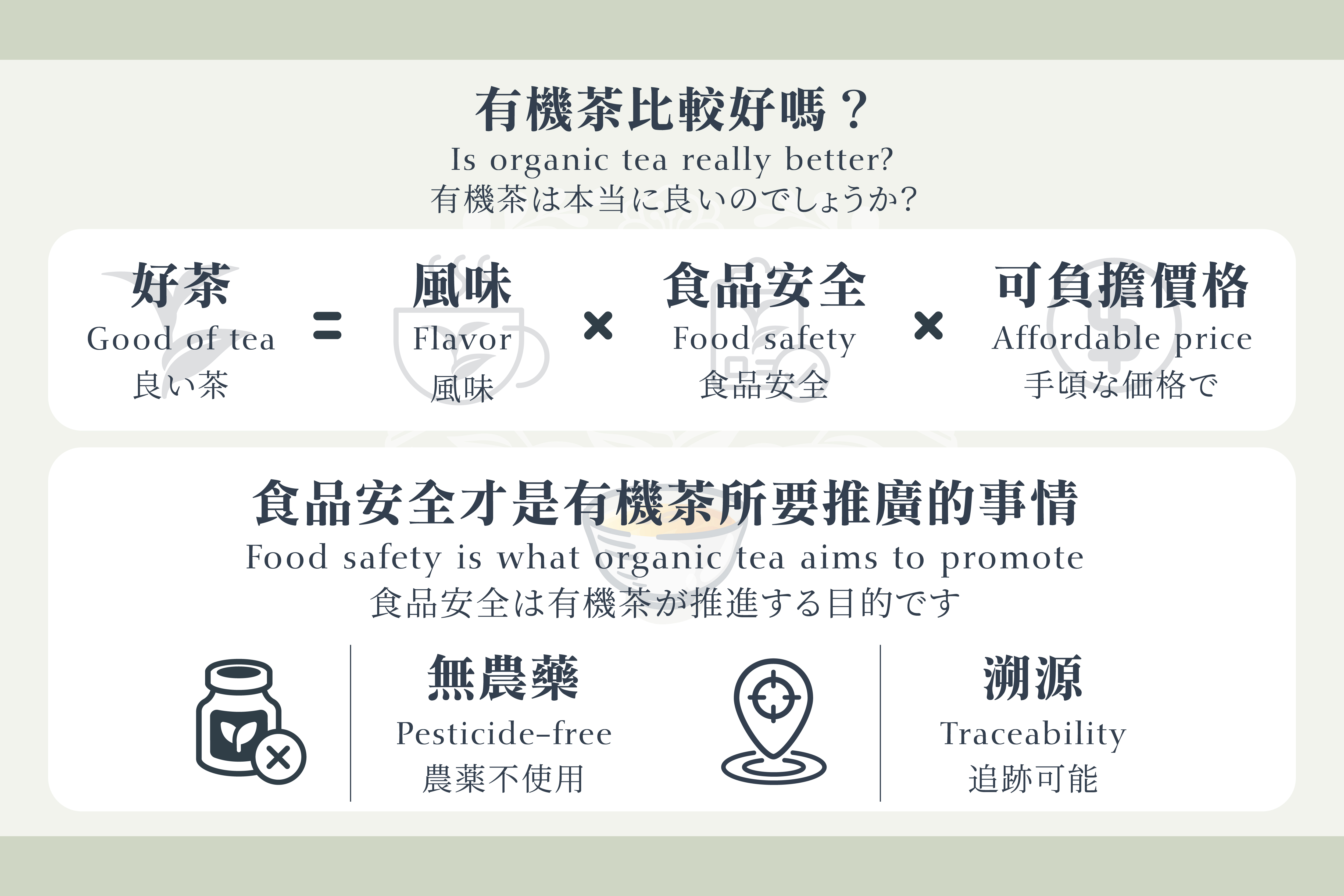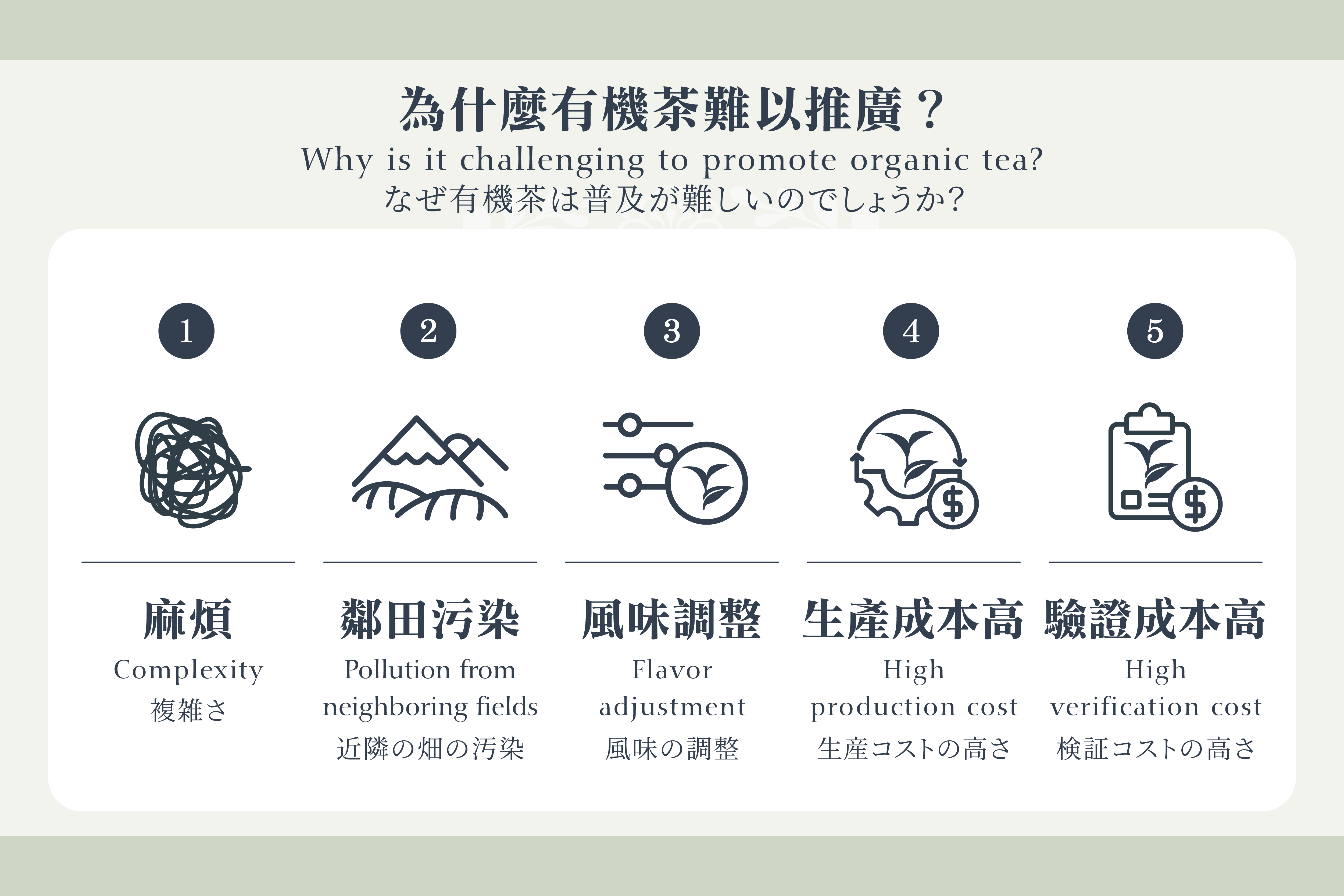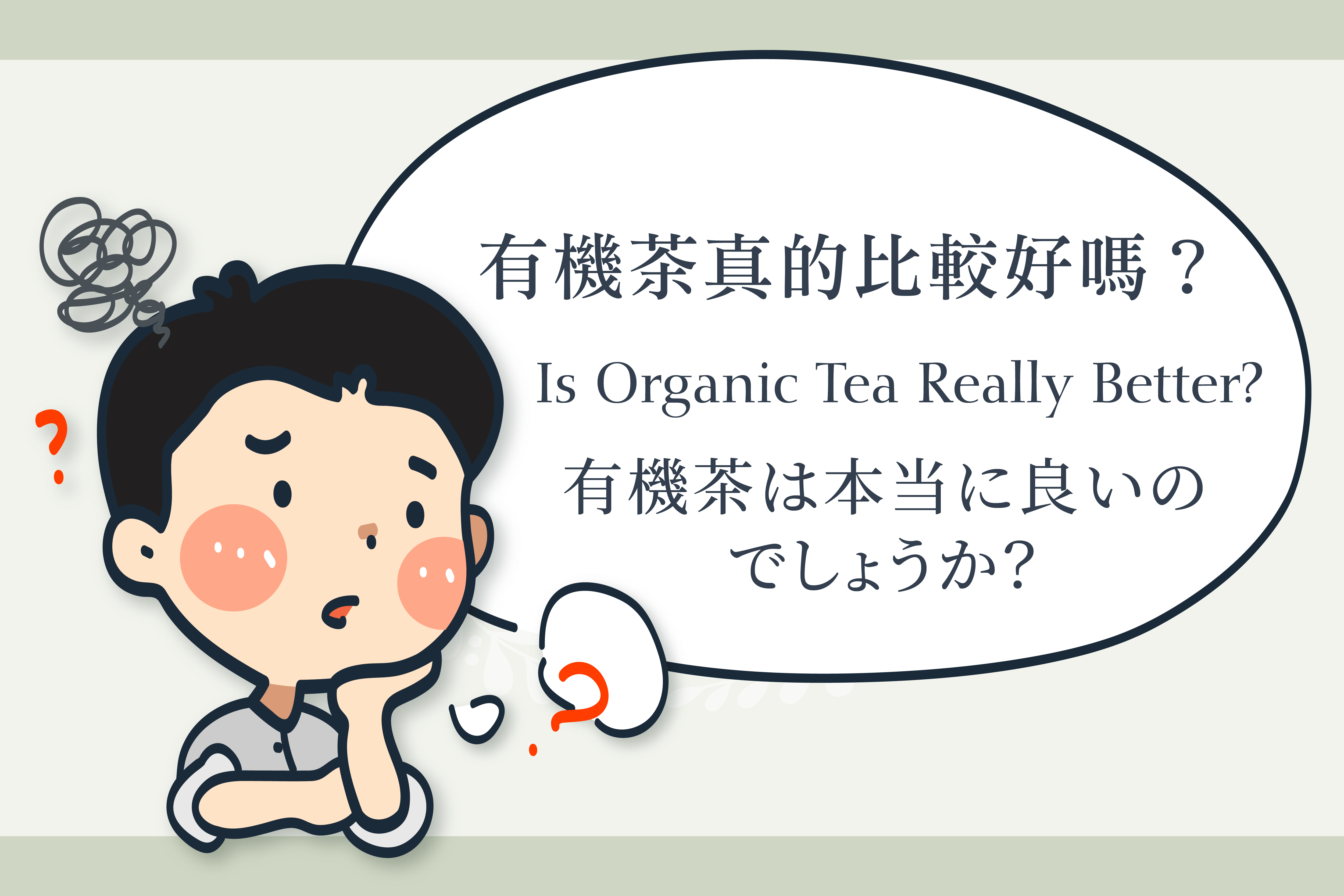Hello everyone, I'm Andy, a tea enthusiast. We often hear that "organic tea" is better, but what exactly makes it better? Today, I'd like to talk about "organic tea" and explore its benefits.
When it comes to organic tea, we need to start by understanding the definition of "Organic Agriculture Promotion Act":
1. To preserve water and soil resources, ecological environment, biodiversity, animal welfare, and consumer rights, and to promote environmentally friendly agriculture and sustainable resource utilization, this law is enacted.
2. Organic Agriculture refers to agriculture involving the production of crops, forests, aquatic products, livestock, etc., based on the principles of ecological balance and nutrient recycling, without the use of chemical fertilizers, pesticides, genetically modified organisms, and their products.
3. Organic Agricultural Products refer to agricultural products produced, processed, packaged, and distributed in compliance with verification criteria set by the central competent authority, and have been verified as qualified according to this law.
From the above information, we can summarize that "organic agricultural products" include keywords such as environmentally friendly agriculture, sustainable resource utilization, no use of chemical fertilizers or pesticides, and no use of genetically modified organisms.
- What is organic tea?
Organic tea refers to tea leaves grown without the use of chemical fertilizers, genetically modified fertilizers, or pesticides. The air, water, and soil are free from pollution, and it must be verified to be labeled as organic tea.
- What are the key points in cultivating organic tea?
Taking Taiwanese tea as an example, apart from discussing the tea plantation environment, the selection of tea tree varieties is one of the main keys in cultivating organic tea. Choosing tea trees with good disease and pest resistance is crucial, such as Jin Xuan tea. If the tea variety used is Qing Xin Oolong, it could be quite challenging as Qing Xin Oolong itself has poor disease and pest resistance. After planting the tea trees, it's important not to rush the harvest. Wait until the tea trees are in a healthy state before picking the leaves. Healthy tea trees can naturally resist pests and diseases.
- What else should we pay attention to regarding organic tea?
1. Fertilizers: Fertilizers must be verified as organic, for instance, using genetically modified soybean meal is not allowed.
2. Pollution from neighboring fields: If non-organic farming is conducted in fields adjacent to the organic tea plantation, pesticide spraying can lead to contamination of the organic tea plantation.
3. Indirect factors: Consider whether emissions from transportation and tea plantation equipment could affect the tea plantation.
4. Packaging materials: Even if the tea leaves comply with organic standards, inadequate safety of packaging materials can affect the effectiveness of "organic," such as unsafe aluminum foil bags that release toxic substances upon contact with the tea leaves.
- Is organic tea really better?
For consumers, the "good" qualities of tea fall into two categories: food safety and flavor. Flavor preferences vary from person to person, but ensuring food safety is what organic tea aims to promote. Besides being pesticide-free, tea leaves must also be traceable to be truly "organic." "Traceability" means that in case of a food safety issue, the source of the problem can be traced back from cultivation, production, and distribution, and the product can be recalled.
- Why is it challenging to promote organic tea?
1. Complexity: Keeping records for everything, careful selection of agricultural materials, and organic processing verification for tea factories are required.
2. Pollution from neighboring fields: Taiwan has closely spaced agricultural fields, so contamination from neighboring fields through air dispersion is a common issue for organic tea. Pesticide residue test values are often very low, below 0.05 ppm, making it hard to detect.
3. Flavor adjustment: Not all lands are suitable for tea growth, and not all soils can produce the desired tea flavor. When practicing organic cultivation, non-organic verified fertilizers can't be used for flavor adjustment. In simple terms, organic fertilizers cannot be used to alter tea flavor, just like a person practicing fitness can only eat organically certified boiled chicken breast and not protein powder or other concentrated supplements.
4. High production cost: Organic tea plantation management and material costs are high, requiring more labor.
5. High verification cost: Organic certification is expensive, and verification requirements can vary between countries.
In conclusion, regardless of whether tea is "organic," the best tea is one that meets food safety standards, has a flavor you enjoy, is affordable, and has a story that you like to hear.
That's all for today's sharing.
See you next time.
Online shop:
https://shopping.yoshantea.com.tw/en/#OrganicTea #TeaEnthusiast #FoodSafety #Flavor #Sustainability #EnvironmentallyFriendly #TeaCultivation #OrganicFarming #yoshantea #taiwantea #dongdingtea #oolongtea #teafacotry #FSSC22000
